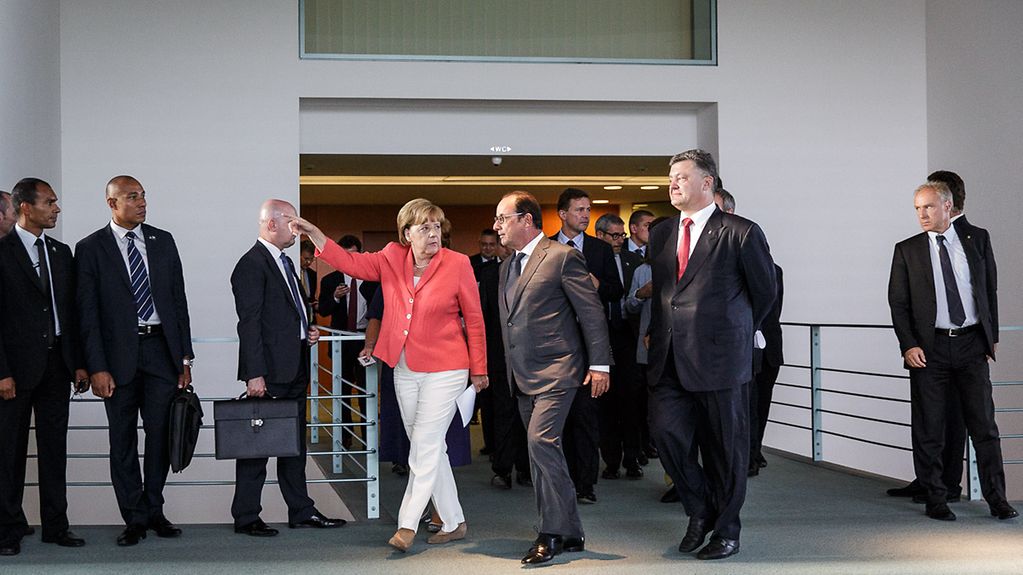Angela Merkel meets with Petro Poroshenko and François Hollande
Chancellor Angela Merkel has met with the French and Ukrainian Presidents to discuss the current situation in eastern Ukraine and explore ways of better implementing the Minsk agreements.
2 min reading time

The Chancellor discussed the implementation of the Minsk agreements with François Hollande and Petro Poroshenko
Photo: Bundesregierung/Denzel
Chancellor Angela Merkel first met with French President François Hollande, before their consultations continued with Ukrainian President Petro Poroshenko who had also flown to Berlin.
Focus on the Minsk agreements
At a press conference before the first meeting the Chancellor underscored the importance of the agreements signed in Minsk in September 2014 and February 2015. "The Minsk agreements must be the foundations on which to build peaceful development in Ukraine," said Angela Merkel.
The existing Normandy format (which is the term used to describe meetings of representatives of Germany, Ukraine, Russia and France to explore the situation in Ukraine) must be strengthened and lent a new depth, she added.
A whole series of problems are still being encountered in the implementation of the Minsk agreements. First and foremost everything must be done to make the agreed ceasefire a reality.
OSCE has a key role to play in the peace process
The work of the OSCE is also very important. "It is absolutely vital for the entire process that the OSCE be able to work," underscored the Chancellor. A variety of obstacles currently stand in the way of this. The German government is watching this with concern. All those present in Berlin agreed that this question should be raised with Russia.
The political path to de-escalate the hostilities is the path we must pursue, she said, including preparations for both constitutional reform and for new elections.
With respect to constitutional reform, a meeting of legal experts of the Normandy group was held last week, but no common position has yet been reached. "More work is needed here." The holding of the next parliamentary elections is "one of the key issues" said Angela Merkel. It is imperative that the election comply with ODIHR standards (the OSCE’s Office for Democratic Institutions and Human Rights).
Other items on the agenda included stepping up humanitarian aid in Ukraine, the release of prisoners and trade relations between Ukraine and Russia.
ODIHR is the OSCE’s Office for Democratic Institutions and Human Rights. It was founded in 1991 and is based in Warsaw. ODIHR supports states and their civil societies in strengthening democracy, the rule of law and human rights. It is known for its election observation missions. Its current director Michael Georg Link is German.